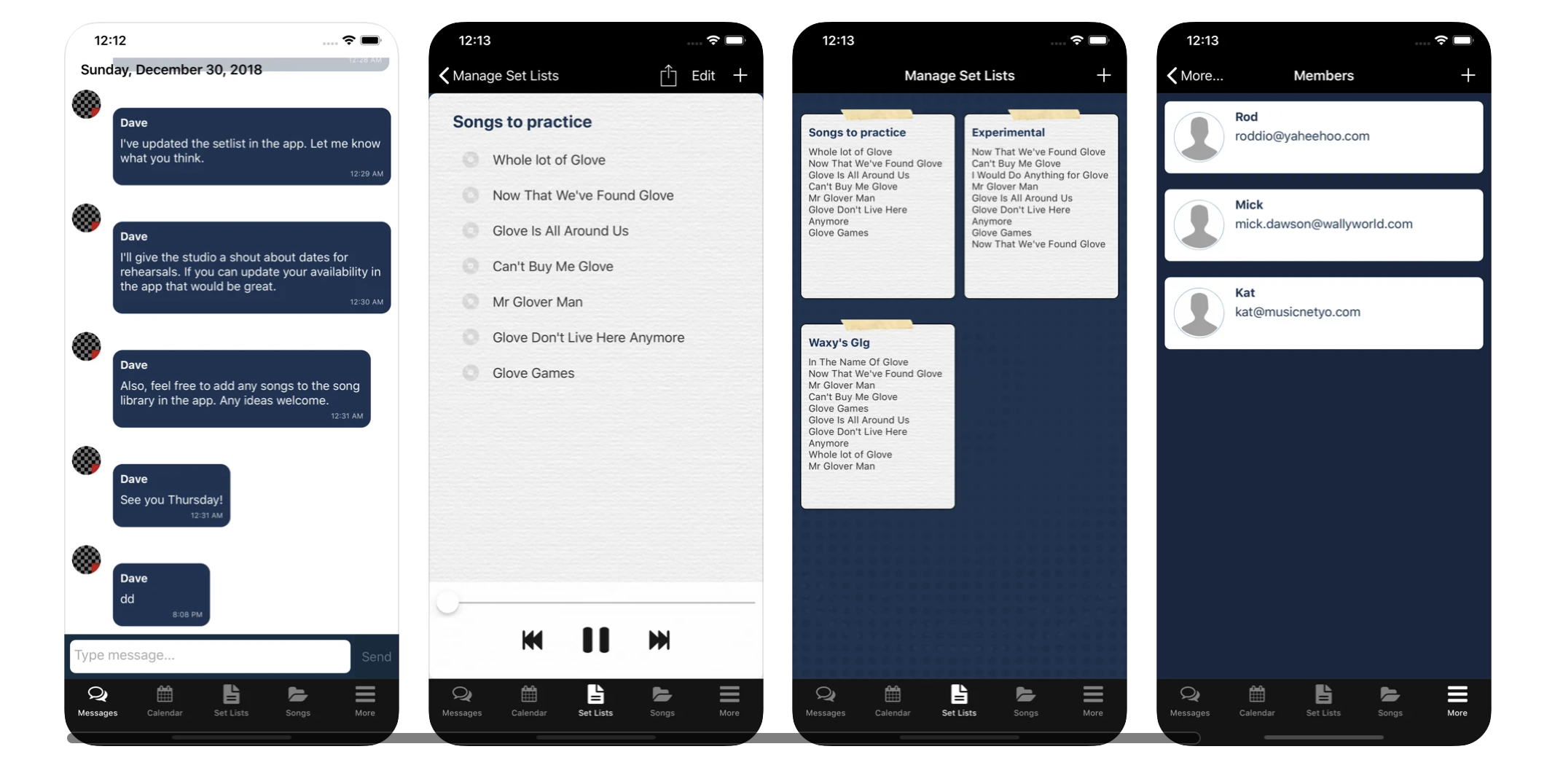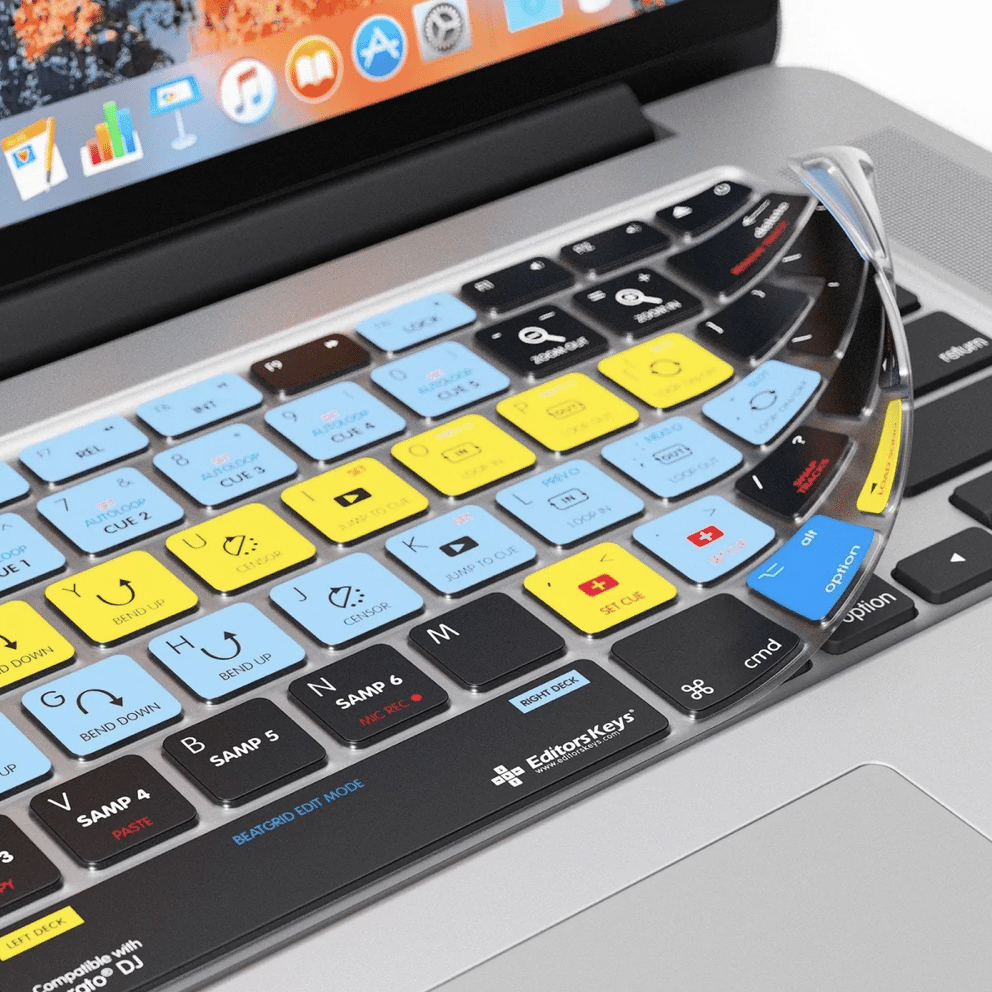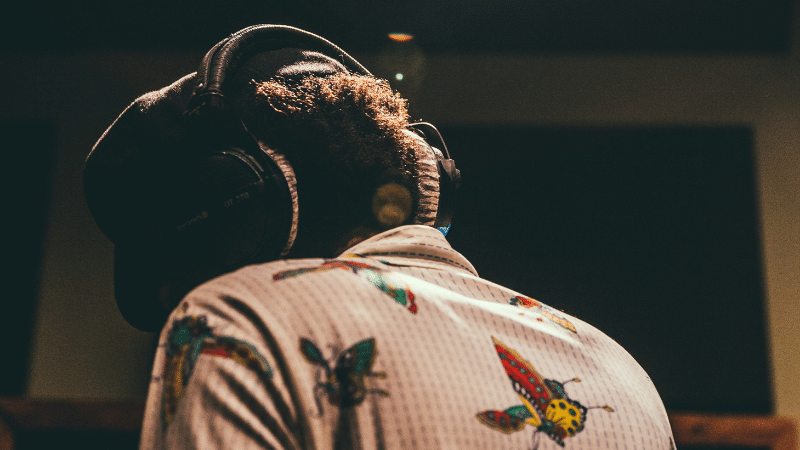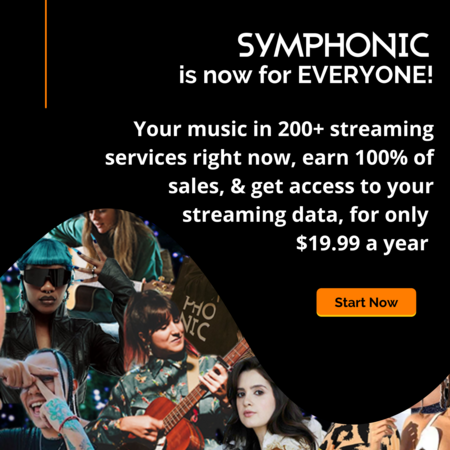
by Francesca | Feb 8, 2024 | Music Industry
Job hunting. We’ve all done it, and most of us will continue to have to do it until retirement comes along. Indeed and Glassdoor are great for seeing everything and anything all at once, but what if you’re tired of wasting your time sorting through thousands of unrelated jobs? Believe it or not, there are job sites just for us music biz folks. Here are some of the best music industry job sites to help you land your next job…
9 Music Industry Job Sites To Help You Land Your Next Job
The Digilogue
The Digilogue is a diverse community of creators and industry professionals in music and tech. They curate conversations and programming around industry education, artist discovery content, and a great career resource on their website. Under their Music Careers tab, click on Job Postings, and you’ll find tons of job listings up for grabs. // Check it out for yourself on their website here.
Music Business Worldwide
This site is one of the best resources for anyone looking to broaden their horizons in the music biz. Music Business Jobs is a website for the global music industry to find the best candidates for their open positions. They post openings all over the country, and you can filter results by location, companies, and job type. // Check out what’s available right here.
Doors Open
The world of electronic music is shaped not only by artists and fans, but also by thousands of small businesses, from clubs to booking agents to publishers and promoters. If you’re looking to work in the electronic music scene, this resource is for you. Doors Open is a place for people to connect with companies and projects they believe in, and for independent music companies to find the staff they need to turn ideas into reality. // Check ’em out here.
Shesaid.so
Shesaid.so is a global community of women and gender minorities in the music industry. They’re absolutely awesome, and they happen to also provide a very useful job portal tab on their website where you can browse open positions and apply. // Click here to see what’s available.
Music Careers
Music Careers is built for music professionals by music professionals to help you find your next job in the music industry. They post up to date jobs, refresh every 30 days, and give you the ability to refine your search by specific niches within the industry. They even post freelance opportunities, too. // Check out what they’ve got to offer here.
Digital Music News
You may already be a fan of Digital Music News‘ industry articles to keep up to date on the latest news, but have you checked out the jobs tab on their website? There, you can check out music industry jobs from major record labels and streaming services to universities, merchandising companies, startups, and more. // Check it out here.
A2IM
A2IM has their own job board to help you find your perfect position. Whether you’re looking for temporary work, an internship, or full-time, their database can search jobs by keywords and location. // Check out jobs on A2IM here.
Music Jobs
Music Jobs is part of a global publication and online community which brings their subscribers industry opportunities and daily news from the world of film, TV, music and gaming. On their site, you can also sign up and subscribe to emails with job opportunities tailored specifically to what position you’re looking for. // Click here to check out the site and search for jobs.
Entertainment Careers
Entertainmentcareers.net is a great site which features jobs in in Film, Television, Music, Production Companies, Radio, Animation, Acting, Production, PR, Design, and more. Whether you’re interested in the music industry or something adjacent, this is the ultimate place to check. // Browse available jobs on their site here.
You got this!
⚡️

by Francesca | Feb 1, 2024 | Music Industry
Looking for new resources to boost your productivity? Manage your finances, form better habits, and get shit done with these useful productivity tools. Here are some of our favorites for independent musicians…
10 Productivity Tools For Independent Musicians
Band Mule
Band Mule is an easy to use private band organizer and band calendar. With it, you can plan gigs, manage your set list, share files, chat, and share songs. It’s like having a mini manager in your pocket.

Editors Keys

Editors Keys is used by some of the top producers, editors, and recording studios in the world. They offer time-saving keyboards and keyboard covers with all the shortcuts for whatever program you use.
For example, this Serato DJ keyboard cover (shown right) has all the shortcuts for Serato.
Whether you use Garageband, Final Cut Pro, Ableton or many of the others like them, there’s probably a physical keyboard or keyboard cover available on this site, saving you ample time looking for shortcuts during your creative process.
Lifeline
Lifeline is a great app developed by the smart people over at Saent. It works by ensuring you take sufficient breaks and better manage your time so you can experience productive, healthy, and fulfilling days. It mainly functions like an innovative timer app, providing flexible session lengths, perfectly timed breaks, and a real-time progress bar to help you develop an optimal daily working rhythm.
If you’re looking to better manage your time and maintain a healthier workflow, this app will change your life.
Sheet Music Scanner
Sheet Music Scanner lets you easily scan, and playback printed sheet music using your smartphone, tablet, or whatever device you use on the go. Ever wondered how that interesting-looking piece of sheet music actually sounds? You can find out with this one. Just point your smartphone or tablet at the sheet and let it play the notes for you. You can choose the instrument, pick the speed, and you’re ready to go.
Mint
Mint is a budgeting app that can help you keep track of your spending and balances. Mint suggests how you could be saving money based on your financial information and transactions. As an independent artist, you’re in charge of how you decide to spend your money. From investing in your team to spending money on Spotify ads, it’s important to keep track of your spending no matter how big or small. — This app can help you do that.
To learn more about managing your money as an artist, check these out:
Kompoz
Kompoz is the perfect tool for remote collaboration. With Kompoz, you can use your favorite audio editing software, like Pro Tools, GarageBand, Logic Pro X, PreSonus StudioOne, REAPER, etc. Just upload your song idea to Kompoz, invite others to jump in and you might get a drummer in France, a keyboard player in Nashville, or a bass player in Malaysia.
It’s super easy to use, and you can create public collaborations to work with artists from their worldwide community or collab privately with your friends and bandmates. It’s up to you. (There are tons of other innovative online tools to help you keep working with your peers on your next banger without ever having to meet in person too. // This post gives you a rundown of some of our all time faves.)
Headspace
Hear me out on this one… If you want to avoid burnout, taking care of your mental health is just as important as anything else on your plate. That said, I think this one counts as a productivity tool. Especially for musicians. Through science-backed meditation and mindfulness tools, Headspace helps you create life-changing habits to support your mental health and find a healthier, happier you. It’s even proven to reduce stress by 14% in just 10 days, and can help you relax your mind in minutes, improve focus, and get the best sleep ever. All of which helps you stay on track in every other part of your life.
Streaks
Streaks is basically a to-do list that holds you accountable, every single day. With it, you can choose up to 12 habits per day that you’d like to implement into your daily life and track their progress. Want to spend more time learning music theory? Add it to the list. Want to make more beats every day? No problem. You can add that, too.
Working on something every day is the first step to forming a long-term habit. Every day that you complete on Streaks adds up, and if you forget a day, your score goes back to zero.
DropBox Sign
This website offers free online contract signing. For those who do a lot of remote collaboration, this is a godsend. Let’s say your vocalist lives in Los Angeles, your producer is in Atlanta, and you live in New York… Sure, you could mail everything back and forth or meet up somewhere in-between, but DropBox Sign lets you electronically request and add legally binding signatures to any document. From licensing agreements and split sheets to cowriting agreements and more, this one gets it all done with ease.

by Francesca | Jan 18, 2024 | Music Industry, Music Marketing
2023 is finally a thing of the past! It’s been a long year, but it’s time to start looking towards the future. As a musician, it’s important to set goals for your career and create a plan to make them happen. From learning new skills and getting more followers to earning more money and booking more gigs, setting clear goals is the key to seeing your dreams come to life. Here’s how to set better goals for the new year…
How To Set Better Goals As A Musician in 2024
Let’s talk S.M.A.R.T.
When it comes to goal setting, many pros around the world use the S.M.A.R.T method. Created back in 1981, S.M.A.R.T is an acronym that helps you create specific criteria for your goals to help improve the chances of their success.
What does it stand for?
S – Specific
M – Measurable
A – Achievable
R – Realistic
T – Timed
How to use the S.M.A.R.T Method:
When it comes to your music career, your goals need to be realistic and specific. You should be able to quantifiably measure their success. For them to be achievable for you as an artist, you also need to be able give it a set time period for it to be accomplished by.
🧠 Pro Tip: Always write down your goals. Once they’re written down, you can look back at them whenever you start to feel lost and get right back on track.
Here’s an example:
Let’s apply the S.M.A.R.T method to, “I want more people to listen to my music”.
What’s wrong with that? — This goal needs to be more specific. First, think about where you want more people to listen to your music. Which platform do you want these listeners on? Next, make it measurable. Come up with a variable that is quantifiable. Now, it’s time to make sure it’s achievable and realistic for where you are in your career. How many new listeners are you actually capable of reaching with your resources?
Those big time goals are good to keep in the back of your mind, but starting off with unrealistic goals will make you frustrated and disappointed when you’re just starting out. You’ll eventually reach those crazy goals, but you need to start small and work your way up. That being said, this leads us to the last step. Timed.
Your goals need to have a time limit. It’s easier to stay on track when you have a set time frame to get things done. (With checkpoints along the way!)
When you apply the S.M.A.R.T method to, “I want more people to listen to my music”, it turns into something like: “I want 1000 more monthly listeners on Spotify by May 31th.” instead. You can keep it focused on your profile’s full monthly listeners or you could break it down even further by focusing on a single release.
Now, that’s doable!
Let’s try one more.
Let’s try a more complex example for applying the S.M.A.R.T method. How about, “I want to go on tour.”
Great goal!
Let’s make it specific, measurable, achievable, realistic and timed. Specifically where and when do you want to go on tour? Is it the right time in your career to start touring? Do you have enough fans in various cities who would buy tickets to your shows? When do you want to achieve this by? What variables do you have to meet in order to meet this goal? For example, reaching X total amount of monthly listeners by this date or cultivating X amount of fans in X cities by this date.
How does this change our original statement? Something like, “I want to go on tour” changes to something like “I will meet XYZ requirements for touring by December 1st in order to start touring by January 1st .”
Make sense? Keep in mind, you can make these goals as specific as you need to. The more specific, the better.
In Conclusion…
2023 was rough for a lot of us. However, one thing it did give us was a chance to assess ourselves. What do we want for our music careers? What’s been working? What efforts have been more time consuming than fruitful? Now that you’ve had all this time to brainstorm about the future, it’s time to make sure your goals for the new year reflect that. 2024 is a great opportunity to jump back in and hit the ground running!
Just be S.M.A.R.T. 😉

by Francesca | Dec 13, 2023 | Music Industry
Self publishing your music comes with a lot of benefits. You don’t have to share your copyrights with anyone, you aren’t bound to any publishing deals and you get ultimate control over where your work is used and how. Keep in mind, self publishing isn’t for everyone. You need to be able to commit significant time and effort to doing everything a publisher would usually do and more. But if this is something that you’re ready to take on, here’s how to do it right.
How To Self Publish Your Music
Let’s Talk Basics…
Self publishing your songs means you take on the role of both the artist and the publisher. Being a self-published writer ultimately means that you hold all the rights to your Intellectual Property (IP), which means you would be in full control of how your compositions are used and would receive all royalties associated with your share of your compositions.
This is awesome, but these perks come with a little extra work. If you’re still interested, here’s what you’ll need to do to self publish your songs…
Step 1: Make Sure Your Music Hasn’t Been Published Yet
If you’ve worked with a distributor before, you may have opted in for publishing services without even realizing it. For example, our publishing administration services are very popular with our own clients. Before you do anything, definitely make sure this doesn’t apply to you.
Step 2: Register with a PRO
In order for you to receive the royalties you’re rightfully owed, your songs need to be properly registered with a Performing Rights Organization like ASCAP, SESAC or BMI. PRO’s rely on the information you provide to determine who they need to pay and how much.
Start setting up your company by going to either www.ascap.com or www.bmi.com to obtain/fill out an application.
- If you are a songwriter and have not yet affiliated, make sure to only do so with only one of these, not all of them.
- To ensure you do everything right, check out this post to make sure you don’t miss anything.
Step 3: Sign Up with the MLC
The Mechanical Licensing Collective maintains the world’s most thorough database of music composition copyrights and their owners. They collect mechanical royalties from digital music streaming services and transmit those royalties to copyright holders based on the ownership claims.
Signing up with them ensures that you get all the royalties that are rightfully owed to you. You’ll need to “Connect to Collect” and become a Member of the MLC in order to collect the digital audio mechanical royalties owed to you.
Step 4: Time to Promote
Once you’ve completed those steps, you can finally start getting your publisher’s share on top of the writer’s share. Now is the time where the duties of a publisher fall onto you.
Typically, your publisher would be the one networking, seeking out sync deals for TV and film, registering copyrights, negotiating licenses, and more. When you self publish, it’s all on you.
In Conclusion…
Self-publishing typically just entails registering with a PRO to be able to manage and publish your own compositions, but it doesn’t have to end there. If you want to go even further, become a publisher and start your own publishing company! Doing so lets you do everything yourself and also gives you the ability to relay your services onto other artists who need it.
You got this.

by Francesca | Nov 30, 2023 | Music Marketing
As intimidating as it seems, consistently releasing new music (every month or even every week, if you believe that works for you) has many undeniable benefits. Aside from making your fans happy to hear more from you, this practice does a lot of good for artists at any level. In this post, we’ll give you 6 reasons to release new music consistently. Here’s the rundown…
How Releasing Music Consistently Can Improve Your Career
Increased Engagement
Consistency is good for engagement on any platform, no matter what you’re into. Want to get better at production? Practice every day. Want to improve your vocals? Sing every day. The same theory applies to putting out music. The more you do it, the most traction it’s going to get. And let’s face it… your fans want as much from you as they can get. When you release new music, on any platform, the amount of people who will interact with it will grow right along with you. Not to mention, from the fan point of view, there’s something exciting about being able to expect something new from your favorite artist every week.
Go Viral on TikTok
TikTok also thrives on consistency. The more you post, the better your chances of it being caught up in the wave of a random trend. Every time you release music, use it to make little TikTok babies. Whether you use it to follow existing trends or to try and create new ones, the more you post the better.
Not sure how to figure out what’s trending right now? No problem. We did a whole post right here that gives you 6 of the best ways to find the hottest trends right now. And if you’re new to TikTok, here are some helpful resources to help you thrive…
Grow Your Catalog
Releasing music more frequently helps you grow your catalog significantly faster than if you waited every 6 months. This can be advantageous for streaming platforms, as the more songs you have increases your chances of being discovered through playlists and algorithms.
If you already have an extensive back catalog, did you know there are things you can do with it to keep the momentum going behind the scenes while you work on new things? Check out, “How To Maximize your Back Catalog While Working on New Releases” to learn how.
Build Momentum
Releasing songs consistently is a great way to build momentum for something bigger down the line. If you plan on going on tour or releasing a full album later in the year, you can hype up the day to come on socials with every release more often. Get everyone on board and offer incentives for streaming your tracks. If they like what they hear, they’ll share your work with their friends and grow your audience one release at a time. When whatever big day finally arrives, you’ll have a whole team of people ready to experience the fun and share it on socials.
Better Chances for Sync
If you want to get featured in movies, TV, commercials and more, it doesn’t hurt to give sync reps a lot to choose from. Although having a lot to choose from does technically help your chances, what kind of music you have out also plays a part.
Jon Mizrachi, the Senior Director of Sync Licensing for our in-house sync licensing division, Bodega Sync, explains:
“If you really want your music to stand out, it’s important to understand that songs are used in sync to support a narrative, not to tell one. If there’s a sad montage where someone dies, you’re not going to hear a song with lyrics about someone literally dying… Even in advertising, which is typically far more literal, music will be used to add depth to whatever you see in the footage or hear in the voiceover. You know what’s not a great song for Toyota? A song about Toyotas.”
So, if you really want to focus on optimizing your music for sync, try to create universal songs that aren’t too specific. If the goal is to connect with the listener, you have to craft your songs to be as relatable as possible. In addition, once one of your songs gets featured, the chances of your other songs getting chosen for other sync opportunities goes up, too. The more music you have, the higher chance of something being perfect for that new TV show hitting the market.
Practice Makes Perfect
Putting out music more often gives you the chance to really experiment with your personal sound. You can try new things and see how your audience reacts and if it doesn’t quite hit, no big deal! Try something new the next time, and keep it moving.
At the end of the day, I realize putting out music consistently is no easy task. Depending on your music, it may even be impossible. If you specialize in full blown musical arrangements for every track or don’t have frequent access to a studio, finishing a full song on a monthly or even weekly schedule is insane to even fathom. At the end of the day, it is up to you and this is an idea to try out where it makes sense. Challenge yourself to at least try, and see how it works for you.
Good luck!









